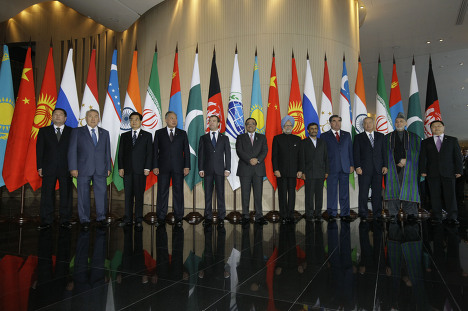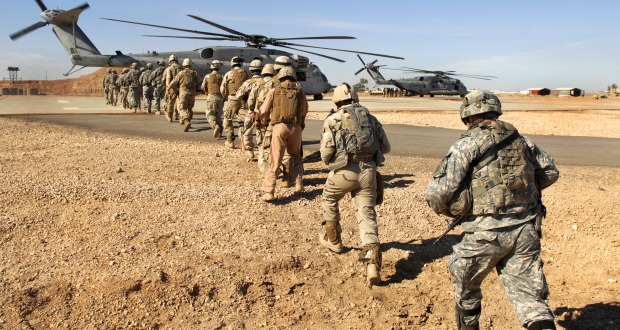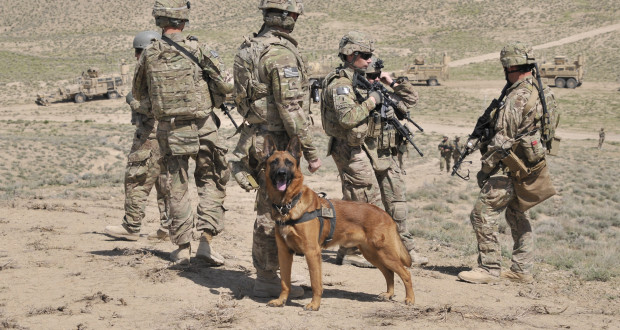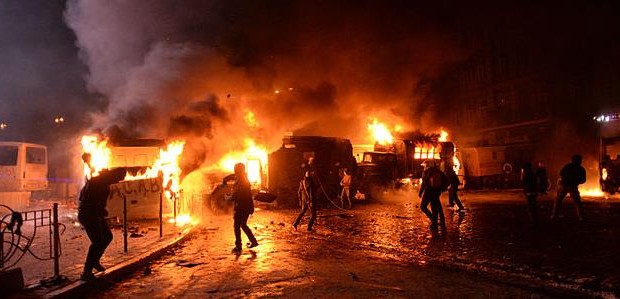Author Archives: Guest Contributor
The Human Security Centre welcomes guest contributions and opinion pieces from external authors like the above.
Guest Contributor
November 5, 2014
Middle East and North Africa, Opinion
The U.S. has been clear that it will not coordinate its operations against IS in Syria with the Assad regime. And most proponents of various strategies to address the Syrian situation stipulate that Assad must go. He isn't after all a highly imperfect force for stability, his actions in the last three-years have proven from the start to have very destructive and destabilizing effects. His pounding to rubble of Syria's cities has caused a giant refugee crisis in the region and burdened neighbouring Lebanon, Jordan, Iraq and Turkey.
Read More »
Guest Contributor
October 15, 2014
Middle East and North Africa, Opinion
While the United States administration has been successful in establishing a multinational coalition to fight the Islamic State (IS) it to date has yet to devise a clever strategy for doing so. Using its cutting edge technology to deliver the fight to an irregular Islamist group through bombing runs and cruise missile attacks clearly is no way to defeat IS. And the administration admits as much. The brunt of the fighting on the ground against IS is still being endured by the Kurds. And not just the Kurds of Northern Iraq, but the Kurds of Syria also.
Read More »
Guest Contributor
October 1, 2014
Middle East and North Africa, Opinion
The United States has expanded its operations against the Islamic State forces operating from northeastern Syria. They are leading a multinational coalition which is using air power to target installations of importance to that group. From the get go the Obama administration has been clear that these operations are not coordinated with the Assad regime in Damascus and has reiterated its adamance that they will never co-ordinate or cooperate with Mr. Assad given his crimes against the Syrian people.
Read More »
Guest Contributor
September 15, 2014
Opinion
The United States recently signed a $11 billion arms deal with the tiny Persian Gulf sheikdom, and Gulf Cooperation Council (GCC) member, Qatar. The deal included twenty-five AH-64 Apache attack helicopters, Patriot air defence missile batteries and portable Javelin anti-tank missiles. It constitutes the biggest arms deal the United States has undertaken this year and comes after four-years of selling those GCC states billions and billions of dollars worth of arms and military technology.
Read More »
Guest Contributor
September 8, 2014
Latest Articles, Opinion
Civilian and military actors have operated together in hostile environments for many years, delivering crucial work to save the lives of those caught in crises. Historically, militaries, NGOs and political actors have most frequently worked closely together in the field of humanitarian crises, with activities usually coordinated to deliver aid and assistance by over-arching national or international organisations taking the lead in planning.
Read More »
Guest Contributor
September 1, 2014
Opinion
Devotees of more realpolitik oriented foreign policy persuasions claim they aren't under any illusions about the brutality of the regime of Syria's Bashar al-Assad. Nevertheless in their worldview limited cooperation with him against a threat like Islamic State (IS) is necessitated by the dire and unsavoury circumstances which exist today in Syria. And since neither the United States nor the United Kingdom are likely to insert ground forces to combat IS forces in Syria a temporary alliance or coordination of operations with Damascus solely in order to fight IS is the best option to feasibly confront this threat.
Read More »
Guest Contributor
August 12, 2014
Middle East and North Africa, Opinion
Guest contributor: Paul Iddon 13th August 2014 UNESCO presently lists 779 cultural heritage sites in this world of ours. Out of these it deems 27 to be in danger. Unsurprisingly most of these heritage sites are located in the Middle East. Many ...
Read More »
Guest Contributor
March 22, 2014
Opinion
Guest Contributor: Ghenadie Virtos 22nd March 2014 The latest developments in the Crimean peninsula – which saw Russian troops enter, take over essential infrastructure and military facilities, and formalise a territorial takeover in just a few weeks – provided a surreal ...
Read More »
Guest Contributor
March 18, 2014
Opinion
Guest Contributors: Timothy Stafford and Laura Dzelzyte 18th March 2014 After more than a decade promoting nonintervention in the internal affairs of other countries, Russia has become the latest convert to the concept of the ‘Responsibility to Protect’, or R2P. The notion, ...
Read More »
Guest Contributor
January 20, 2014
Iraq and Syria, Opinion
Guest Contributor: Robert Halfon MP 20th January 2014 Robert recently visited Kurdistan in Northern Iraq with the All-Party Kurdistan Group. In this article he describes the three challenges facing the Kurdistan Regional Government (KRG). When people ask me if the Iraq ...
Read More »

 Human Security Centre Human Rights and International Security Research
Human Security Centre Human Rights and International Security Research




